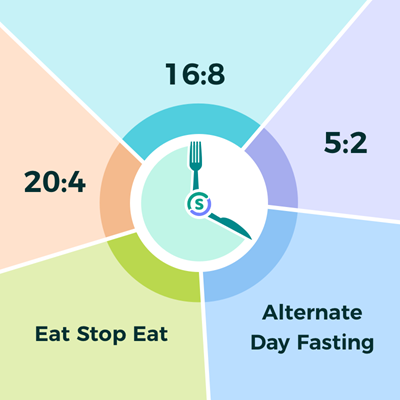Intermittent Fasting: In the world of wellness, Intermittent Fasting (IF) has emerged as a revolutionary approach to health and weight management. Rather than focusing on what to eat, intermittent fasting emphasizes when to eat — making it more of a lifestyle than a diet. From boosting metabolism to improving mental clarity, IF has gained immense popularity across the globe, including in India.

Table of Contents
🧠 What is Intermittent Fasting?
Intermittent fasting is an eating pattern that cycles between periods of fasting and eating. It doesn’t prescribe specific foods but rather sets eating windows, allowing the body to burn fat effectively during the fasting phase.
Popular IF methods include:
- 16/8 Method: Fast for 16 hours, eat within 8 hours (e.g., 12 PM to 8 PM).
- 5:2 Diet: Eat normally for 5 days, restrict calories to 500–600 for 2 days.
- OMAD (One Meal a Day): Eat one large meal in a 1-hour window.
🔥 Health Benefits of Intermittent Fasting
- Weight Loss & Fat Burning: Fasting allows the body to switch from using glucose to burning stored fat for energy. This naturally leads to weight loss, especially around the belly area.
- Improved Insulin Sensitivity: IF reduces blood sugar levels and improves insulin sensitivity, making it an effective tool for managing or preventing type 2 diabetes.
- Enhanced Brain Function: Fasting boosts brain-derived neurotrophic factor (BDNF), supporting memory, learning, and mood stability.
- Hormonal Balance: Intermittent fasting helps regulate hormones like HGH (Human Growth Hormone), which plays a role in muscle growth and fat metabolism.
- Cellular Repair & Detox: During fasting, the body initiates autophagy – a cellular “cleansing” process that removes damaged cells, reducing the risk of chronic diseases.

🍽️ Intermittent Fasting: Indian Context
For Indian households, adapting intermittent fasting is simple. Our traditional eating habits already include long gaps between meals. A sample 16/8 plan for Indians could look like:
- Fast from 8 PM to 12 PM
- Eat from 12 PM to 8 PM, including:
- 12 PM: Seasonal fruits or salad
- 2 PM: Dal, rice, sabzi, and roti
- 6 PM: Buttermilk or nuts
- 7:30 PM: Light dinner like khichdi or soup

✅ Tips to Start Intermittent Fasting Safely
- Start with 12-hour fasts and gradually increase.
- Stay hydrated — drink water, herbal teas, or black coffee.
- Avoid processed foods during eating hours.
- Get enough sleep and avoid late-night eating.
- Consult a healthcare provider if you have medical conditions.
⚠️ Who Should Avoid Intermittent Fasting?
While IF is safe for most people, it may not suit:
- Pregnant or breastfeeding women
- People with eating disorders
- Individuals with chronic illnesses
- Those on diabetes or blood pressure medications (consult doctor first)

📌 Final Thoughts
Intermittent fasting is more than just a trend — it’s a time-tested practice aligned with how our ancestors lived. Whether you’re looking to lose weight, improve digestion, or enhance mental clarity, intermittent fasting offers a simple yet powerful path to wellness.
Start slow, listen to your body, and make it a sustainable part of your daily life. 🌿

1 thought on “🕒Intermittent Fasting: 5 Benefits that Transform Your Health”